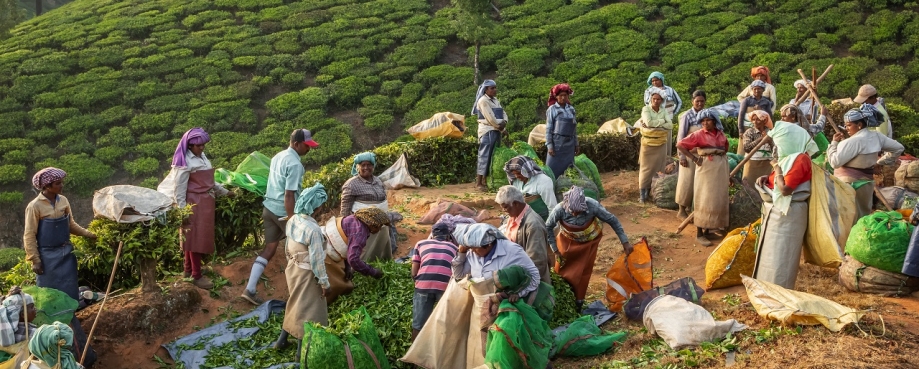
In 2017 ETI – along with ETI Norway and Denmark – published the ‘Guide to Buying Responsibly’. The guide was widely welcomed by suppliers, brands and retailers and is still used by buyers in major international companies. It was based on a global supplier survey conducted by the joint ETIs and the ILO, with support from SEDEX.
I was part of the team behind that survey. When we started designing it, we were advised that if it had more than ten questions, nobody would respond. It had over 70 questions and over 2,000 suppliers across multiple countries and industries responded. Why? And can THIRST hope for a similar response to its Global Tea Producers Survey?
Why suppliers are eager to speak out… anonymously
Suppliers come under a lot of pressure from all angles. From workers, their representatives and civil society to improve pay and conditions, and from their customers to meet codes of conduct and to keep prices low.
They are often constrained from speaking out about the challenges that relate to their customers, because they are understandably nervous about offending them.
But the response to the ETI/ILO supplier survey was a clear demonstration that, when given the chance to do so anonymously, suppliers are eager to explain the challenges they face in meeting demands for better working conditions for their employees.
Now THIRST is offering the same opportunity to tea producers.
Fact-finding, not finger-pointing
Some tea producers may be equally nervous about speaking up and exposing themselves. And some tea brands and retailers may be nervous that this is an invitation for their suppliers to criticise them.
This nervousness is exacerbated by the fact that the tea industry is currently under considerable pressure with rising production costs, stagnating prices and climate impacts affecting its profitability and jobs. Nobody wants to tarnish its reputation further and risk losing more customers.
But, as I explained in this TeaBiz podcast, this survey is simply an exercise in understanding the facts so we can find solutions. There is no intention of blame or finger-pointing at any element of the industry.
THIRST, along with other NGOs and civil society, wants the same as companies: for the tea industry not just to survive but to thrive, and for everybody within it to be treated fairly and have a decent life.
An unmissable opportunity for tea producers and brands
For tea producers, the Global Tea Producers Survey is a unique opportunity to speak freely (thanks to the survey’s anonymity) and explain their reality; shedding a necessary light on the obstacles they face in meeting the demands of civil society and their own customers, to improve conditions for their workers.
For tea brands and retailers, it’s an opportunity to understand the real pressures their suppliers may be under, which could be driving human rights breaches. It will also help them to consider what changes they could make in their own practices and relationships with suppliers that will help them provide workers with better pay and conditions. They can see it as part of their supply chain human rights due diligence – something that will become mandatory in many countries.
Results will lead to action
The results of the survey will, alongside THIRST’s 2022 report Human Rights in the Tea Sector – The Big Picture, form the basis for a series of international, multi-stakeholder meetings to discuss what can and should be done – and by whom.
These will not be mere talking shops, but action planning sessions aimed and working together to create a tea industry fit for the 21st Century, a thriving industry that is fair for everyone in it.
Managers and owners of tea estates (also referred to as gardens and plantations) employing more than 15 workers can register here for the Global Tea Producers Survey. Please register before 31 January 2023.
